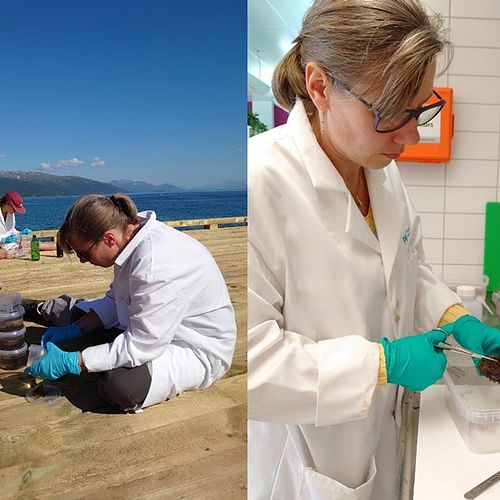10 January 2022 news
Senior scientist at Akvaplan-niva Claudia Halsband is co-editor of the book "Particulate plastics in terrestrial and aquatic environments". The book has now been selected for a Choice “Outstanding Academic Title” award. The award is presented annually to a prestigious selection of academic material.
The "Outstanding Academic Title" award represents the highest calibre of scholarly titles that have been reviewed by Choice, and conveys the extraordinary recognition of the academic community (https://www.ala.org/acrl/choic...).
To obtain recognition as an “Outstanding Academic Title,” scholarly works must demonstrate:
- overall excellence in presentation and scholarship
- importance relative to other literature in the field
- distinction as a first treatment of a given subject in book or electronic form
- value to undergraduate students
- importance in building undergraduate library collections
The following review of the book appeared in the October 2021 issue of CHOICE;
"This work emphasizes the tremendous increase in plastics use within the past two decades and their degradation into particulate matter—often difficult to filter out—that may combine with other compounds or be ingested by a variety of organisms with detrimental results. As readers learn, global plastics production has increased 60-fold since the 1960s to more than 300 million tons per year, and most of it still exists. Although less obvious to the public than whole plastic objects, microplastics (measuring between 100 nm and 5 mm) and nanoplastics (less than100 nm) pose a major threat to both terrestrial and aquatic environments. Though most works on plastic pollution focus on its effects on aquatic environments, damage to the terrestrial environment is well covered in this volume. An international group of authors, largely from academia, contributed 25 chapters covering everything from sources of particulate plastics to their effects on different ecological niches in various countries, accompanied by appropriate images, graphs, tables, and diagrams. The final three chapters offer suggestions on how the effects of microplastic pollution might be biologically mitigated. This highly readable book provides excellent insight into a crucial environmental problem and is a great resource for undergraduates through concerned professionals.
Summing Up: Highly recommended. Lower- and upper-division undergraduates. Graduate students, faculty, and professionals. Students in two-year technical programs.
M. A. Manion, University of Massachusetts at Lowell
Congratulations to all book authors: Nanthi S. Bolan, M.B. Kirkham, Claudia Halsband, Dayanthi Nuegoda and Yong Sik Ok.
Link to book at Routledge: https://www.routledge.com/Part...

